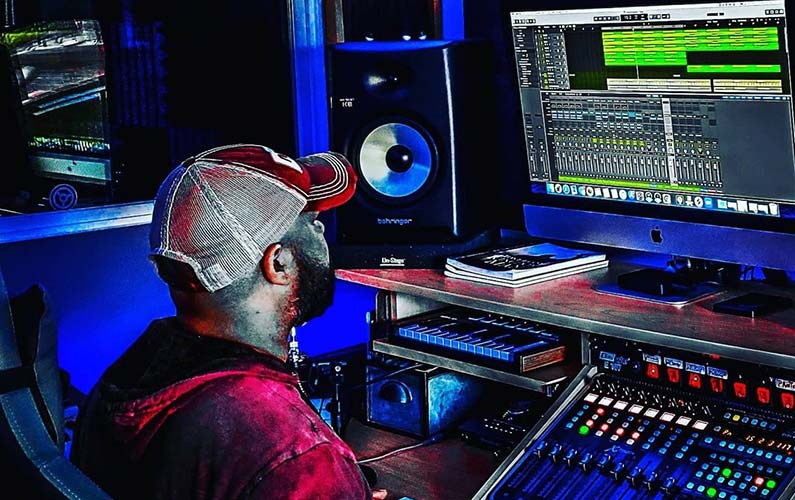Finding Your Niche
It seems like some people are born knowing what they want to be when they grow up. They know what path they’re going to take, and they pursue it with single-minded passion. However, our life paths can take a more circuitous route. Geronimo, like many of us, fell into the latter group.
In Japan, they have a concept called ikigai. There’s no direct translation to English, but it embodies the idea that there is a point at which a person’s passion, interests, skills, vocation, and ability to earn a living and do good in the world all come together. In a nutshell, it is the reason you get up in the morning, the reason you put one foot in front of the other. Or, as the BBC explains, “it’s a term that embodies the idea of happiness in living.”
As you might imagine, it can take years to find your ikigai. Some manage it. Some never do.
Geronimo is definitely one who has managed to discover his reason for being. It wasn’t always that way, though. He struggled like everyone else, but eventually, something clicked. This is his story.
A Dream but No Path
We pick up Geronimo’s story in his adult life. He is part of the R&B/hip-hop group Peace II The Puzzle. The husband and wife duo saw some success and landed a deal with a record label. Like many other performers and musicians, Geronimo found himself buying beats online and then modifying and rapping over them.
The trouble was that the people who wrote his beats were seeing some pretty significant success. Perhaps you’re familiar with the Grammys? That success meant one thing – rising prices. Before long, Geronimo found himself forced to pay $3,000 to $5,000 for a beat.
Frustrated with the situation, he decided to look elsewhere for beats but wasn’t able to find anything approaching the quality he needed.
A Turning Point
This marked a turning point for Geronimo. Without any quality beats, his group was at a serious disadvantage. The fact that his record label deal was less than ideal didn’t help matters – no music, no production, no money. With few other options, and fueled by a bet with his wife, he decided to try his hand at production.
He purchased a beat machine from Roland and started learning how to use Cubase. However, because he didn’t understand the basics of sound, all he found was frustration. All the YouTube videos in the world only provided overviews – there were major gaps in music theory, how sound works, and so much more. Realizing there had to be a better way, he decided to find someone to teach him.
It didn’t take him long to discover several online schools in Philadelphia. He even went so far as to email three of them. Two never responded, but Lil’ Drummaboy Recordings (LDB) called him right back. After discussing the situation, Samori Coles, LDB founder and instructor, told him no problem – you can produce your own beats and I can show you how to do it.
Learning the Trade
A single phone call with Samori led Geronimo to Lil’ Drummaboy Recordings’ South Street (Philly) studio facilities – he instantly felt welcomed and at home. The vibe of the place, the organization’s mission, and Samori’s own story of struggle and triumph all resonated with him.
He’d found what he needed. Now he just needed to put in the work.
And with no recording/production experience to speak of, he worked hard.
Geronimo wasted no time diving right in and taking on everything he could. He enrolled in LDB’s dual Audio Engineering and Music Production School.
During the audio engineering portion, he learned everything he needed to know, beginning with how sound works to EQ, compression, how to create an optimal recording environment, and all the fundamentals to achieving high-quality recording projects. Mixing, mastering, the basics of frequency, effects – he even learned how to do sound design, scoring, voice-overs and soundtracks for films.
“Several things set LDB’s approach apart, in my opinion,” Geronimo explained. “One of the most important is that they have a one-to-one class where you work directly with your mentor. Other schools might do a good job of teaching, but with a large class, there’s a lot of material lost. There’s also more than a little bit of intimidation when you need to ask a question, but feel like it’s a dumb one.”
Entering the music production portion of his education was eye-opening for Geronimo. Samori worked to help him understand music theory, basic piano, arrangement, composition, and Logic Pro X (which is Geronimo’s preferred software program). LDB instructor Mike Moore also played a role in helping him learn the importance of adding various percussive elements to a production. “Another thing that I have to give LDB credit for is their approach to music production. It’s entirely tailored to the student – the way they learn best, their background, all of it. It directly relates to the learner,” said Geronimo.
However, perhaps the most important thing to come from his time with Lil’ Drummaboy Recordings was this: Geronimo found his ikigai in music production. He discovered his gift and ignited a passion that is already propelling him further.
The Birth of P2P Media Productions
Geronimo took what he learned from LDB and fused it with his own passion and drive to do something meaningful. He built P2P Media Productions. With the knowledge of how sound works and how to create an environment to achieve optimal recording results, he designed his studio to exacting standards. The result? A professional-grade music studio that allows him to take on his own clients. The certificates that he earned from Lil’ Drummaboy Recordings are now displayed on his own studio’s wall. They show that he invested in himself through education and then put that education to work in building his own future.
Today, Geronimo works with hip-hop artists, R&B artists, worship singers, and more. He helps current and rising stars fine-tune their talents to create incredible experiences. However, he remains humble and credits LDB with getting him to where he is.
“LDB provided all the fundamentals I needed, the building blocks that I put together into P2P Media. I cannot recommend Samori Coles and his school enough. LDB is the place to be!”


Where is his studio located?
Geronimo’s studio is located in New Jersey, around Cherry Hill. You can connect with him on IG @peace2puzzle.